Codling Moth
Cydia pomonella
Codling moth (Cydia pomonella) is the most serious pest of apples and pears in New Zealand. Adults lay eggs on or near fruits and the larvae burrow their way into the fruit. It is critical to control the larva before it enters the fruit as presence in fruit is a quarantine pest in several key export markets.


Codling moth - larvae

Codling moth - caterpillar
Related Pests
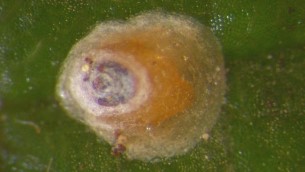
Armoured Scales
Several species of armoured scales are significant pests of fruit crops in New Zealand including apples, kiwifruit, grapes and citrus. Armoured scales are sucking pests which can debilitate plants that are heavily infested but are of primary importance as their presence on fruit is a quarantine issue in many export markets. Armoured scale adults are small immobile insects with a protective shell like cap that varies in colour depending on species.
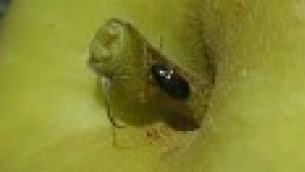
Bronze Beetle
Eucolaspis brunnea
The adult form of the New Zealand grass grub is commonly called bronze beetle (Eucolaspis brunnea). Flights of the beetles in late spring can cause damage to fruit trees including apples. On apples the beetle chews leaves and fruits causing scalloping marks on fruit.
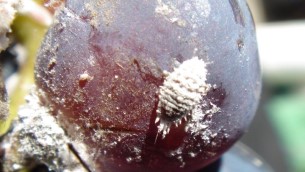
Mealy Bug
Mealybugs are significant pests of grapes and apples in New Zealand. Controlling mealybugs in grapes is very important as they transmit Grape Leaf Roll Virus (GLRV3). Mealybugs are sap sucking hidden pests that prefer sheltered and protected sites on plants. Often the first indication of their presence is sooty mould which grows on the honeydew produced from mealybug feeding.
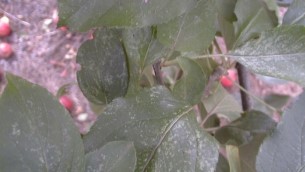
Froggats Apple Leafhopper
Edwardsiana crataegi
Froggatt’s apple leafhopper (Edwardsiana crataegi) are small yellow tubular shaped and are present throughout New Zealand.They feed on the underside of leaves causing yellow
spotting on the top. They produce honeyde, resulting in sooty mould which downgrades fruit from export.
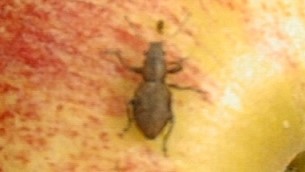
Fullers Rose Weevil
Pantomorus cervinus
The adult Fuller’s rose weevil (Pantomorus cervinus) emerges from the ground in mid-summer and can crawl up in to trees and damage leaves and fruit. Feeding causes 3 - 5 mm indents in
fruits. Chewing on stems can cause the fruit to drop.




